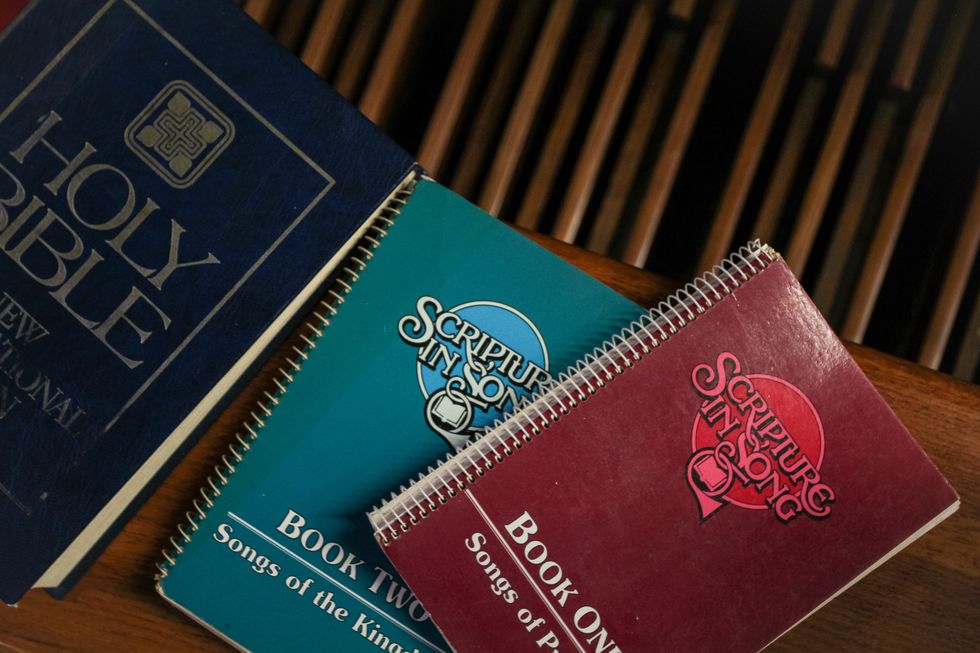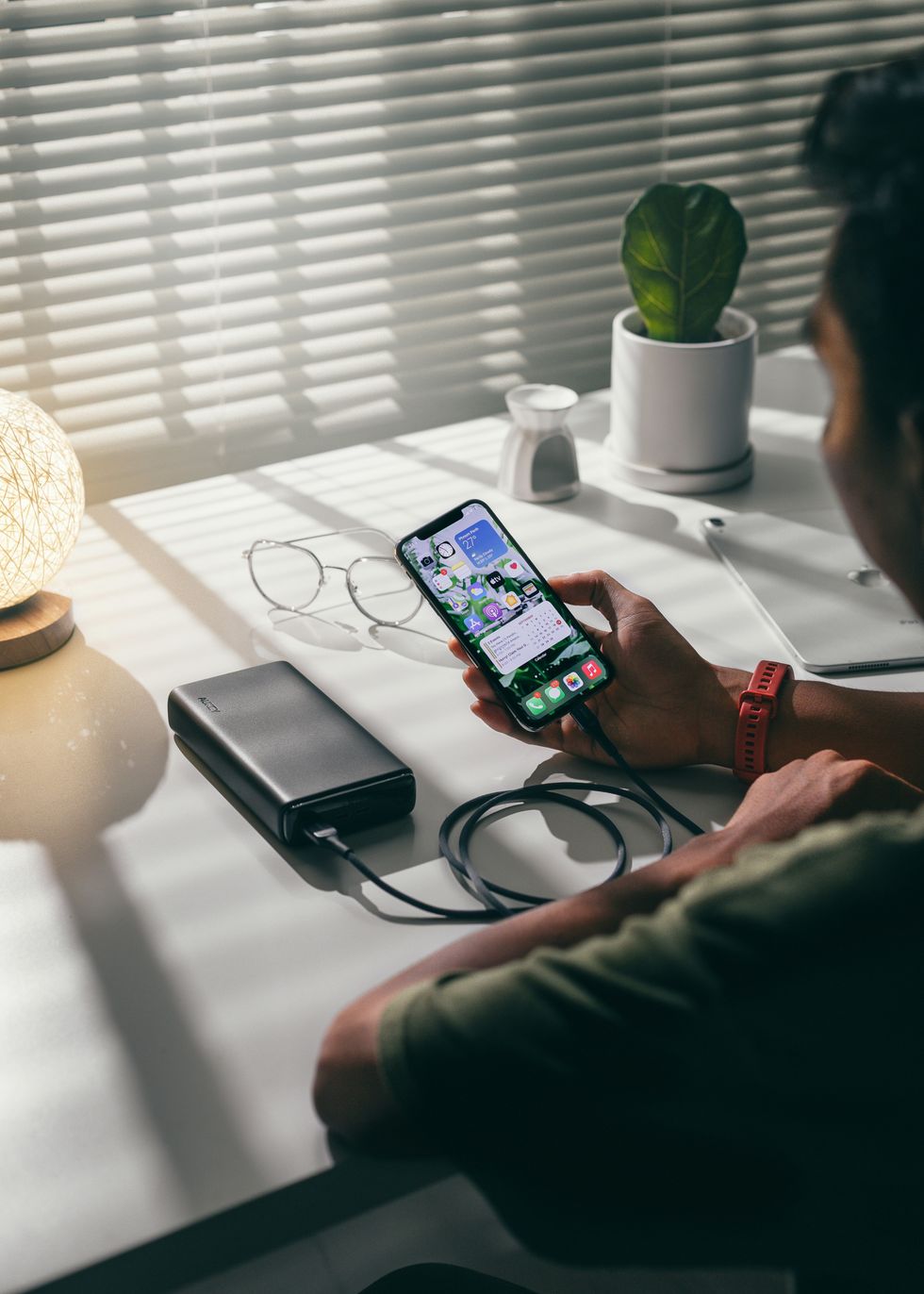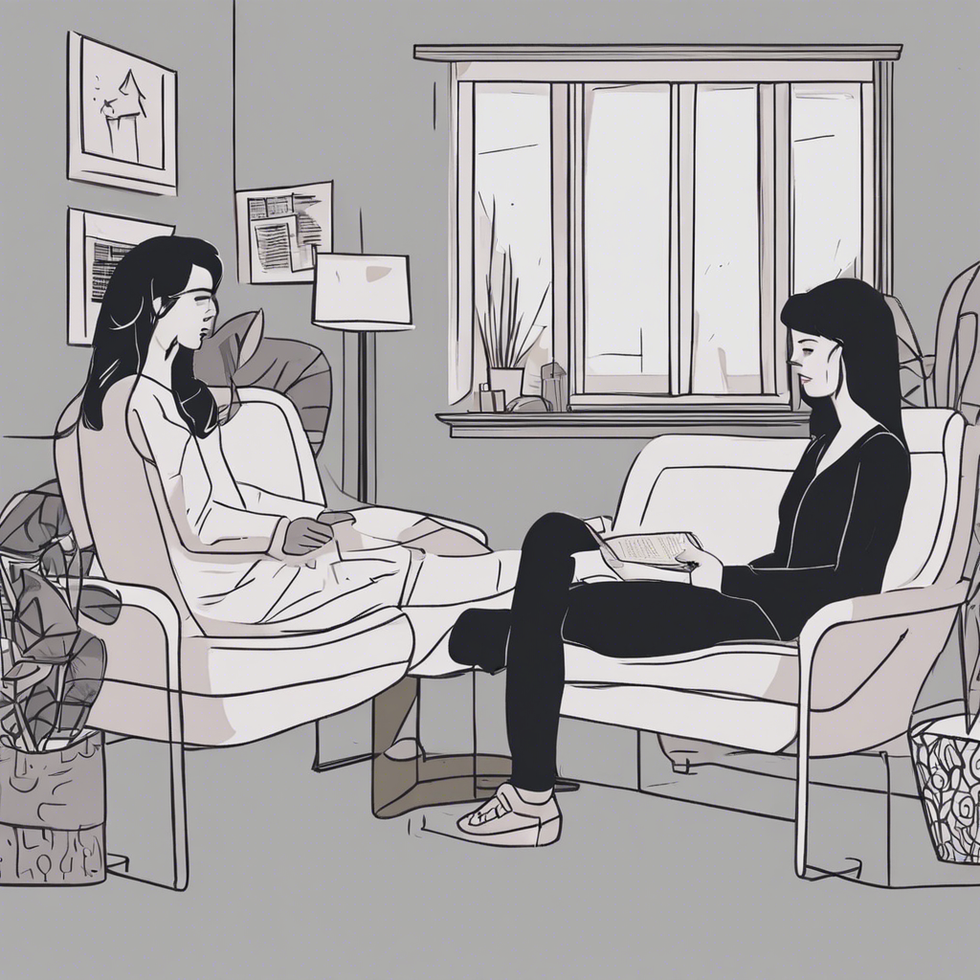“Fear not, for I have redeemed you; I have called you by name, you are mine. When you pass through the waters, I will be with you; and through the rivers, they shall not overwhelm you; / when you walk through fire you shall not be burned, and the flame shall not consume you" (Isaiah 43: 1-2).
Part 1
A season of loss showed me my faith protected me from doubt, anxiety and fear. I told myself, "God wouldn't show me grace. He wouldn't come through for me. Marriage wasn't for me."
I was scared of losing what mattered most: Someone I loved, my "Golden Boy," aka my ex.
Would the relationship last after graduation, through so much change? If not, how badly would it hurt? I decided that the pain was worth it because we pick who we think is worth grieving for, but as graduation approached, my fear got the best of me.
I've been told that I suck at hiding my emotions, but I still do it. My ex wasn't good at reading me, but I'm sure being unlike myself made him think the worst was going to happen.
"Tell your S.O. how you want more," said my best friend. "You're underestimating him."
Ash or vulnerablity? Guess which I picked.
Afterwards, dreaming with God got hard because it required trust and faith. Things in which I had a crumb or mustard seed.
If He didn't hear me, if He didn't show me grace, there was no point.
The cost was simple: I would deny part of myself, which meant denying how I believe in a God who is loving and personal. I would deny Him by sharing an unpleasant testimony, one filled with anguish.
Faith is a two way street. I'm to defend God's name because if I don't, who will? If I bare his name, Christian, I'm to remind others of His goodness and His legacy (Luke 12: 8-12).
Similarly, He reminded me of my goodness and my legacy. I have to show myself grace. I can't hold myself responsible for every little thing that happens in my life. I simply can't control that much—just my reactions.
I remember when He sent a song bird, a symbol of love, into my windshield. I was confessing how I wanted to walk away from from Him. The dead bird reminded me of the consequences: Death to my spiritual life and our love story.
Later, I discovered a stranger slipped a silver cross necklace into my purse while I was at a coffee shop. It has a Star of David and a diamond right where Christ would be. It reminded me: Christ is the groom who never leaves. His heart is pure. I'm worth a lot to Him.
That doesn't mean I wasn't still upset with Him. Everything wasn't fixed. It meant I wasn't alone, though. He is with me for better or worse. He is not done with me, so I will boldly keep dreaming and remain in faith. And I am. I'm in a new relationship, and I'm letting Him re-build my life after a season of loss.
Here's a song called, "Find You Here," by Ellie Holcomb.
Part 2
Nebuchadnezzar was tolerant or benevolent. He cultivated a city where liberal arts thrived, women had (more) rights, temples and education was valued, roads were built, etc. But, since the king captured Jerusalem, he oppressed the Jewish community.
In the book of Daniel, Nebuchadnezzar is depicted as unwise, unreasonable, and intolerant. The king dreamed about a “great image" (Daniel 2:31). He refused to tell his Chaldeans information on what he dreamed about, yet he wants the wise men to interpret his dream. If they can't, the consequence is death to every wise man in the city.
When the dream is revealed to Daniel by God, it's nothing short of a miracle. Afterall, who can read someone's mind?
Daniel had to rely on his faith that God was right in interpreting the dream's meaning. Or else, Daniel would have died. This is an instance when faith and trust in God acts as a shield of protection.
Daniel describes the image: “The head of this image was of fine gold, its chest and arms of silver, its middle and thighs of bronze, its legs of iron, its feet partly of iron and partly of clay" (Daniel 2:32). The image was then broken into pieces by a stone crafted “by no human hand" (Daniel 2:33). The pieces of this image were then carried away by the wind, like dust or ash, but the stone (God) remained; it “became a great mountain and filled the whole earth" (Daniel 2:35).
Daniel explains: The vision foreshadows the future of Babylon and Nebuchadnezzar; there will be a bronze kingdom and an iron kingdom that will rise after Nebuchadnezzar's golden Kingdom. The stone crafted by no human hand is God. God has designed the world to constantly change and cycle out. This is unlike God's kingdom, which will reign forever (Daniel 2:34-45).
When the king hears this, Nebuchadnezzar ignores it because like any king, he wants to be glorified and remembered. He created a great city with many wonders, and he wants a legacy of his own. So, Nebuchadnezzar goes through with creating this golden image, a represention of his ego, pride,and the golden age (Daniel 2:37; Daniel 3:1-6).
Nebuchadnezzar is depicted poorly in Daniel because of his persecution of the Jews, but this was a decision heavily reliant on his Chaldeans. The Chaldeans reminds the king that he has a decree; anyone who was not going to worship the golden figure “shall be cast into a burning fiery furnace" (Daniel 3:11), which leads to a few Jewish men to be made into a lesson.
The king taunted Shadrach, Meshach, and Abednego, saying: Who will save you? (Daniel 3:15). The men responded with faith: Our God "is able to deliver us from the burning fiery furnace, and he will deliver us out of your hand, O King [Nebuchadnezzar]. But if not, be it known to you, O king that we will not serve your gods or worship the golden image that you have set up" (Daniel 16-17). The men proclaim their faith in God, while also challenging God to prove to a nonbeliever like Nebuchadnezzar that God protects.
Why? The men know they can test God as much as God can test them.
Nebuchadnezzar watched them remain unharmed: “The hair of their heads was not singed, their cloaks were not harmed, and no smell of fire had come upon them" (Daniel 3: 25, 27).
The king proclaimed God as the highest. Even then, the king still needed reminding of who God is. Likewise, it's okay to need to be reminded.
Like, Daniel and those facing the furnance, a person's faith can served as a shield of protection. The shield of faith is then to help us grow in times of hardship. It is there to remind us of God's promise to provide, protect and never foreshake.



 Photo by
Photo by  person holding black smartphone on white textile
Photo by
person holding black smartphone on white textile
Photo by  StableDiffusion
StableDiffusion
 Photo by
Photo by  Photo by
Photo by 
 roommate as a therapist
StableDiffusion
roommate as a therapist
StableDiffusion
 woman in white shirt eating pizza
Photo by
woman in white shirt eating pizza
Photo by  person holding remote pointing at TV
Photo by
person holding remote pointing at TV
Photo by  person holding assorted clothes in wooden hanger
Photo by
person holding assorted clothes in wooden hanger
Photo by  a couple of
a couple of  friends cleaning apartment
StableDiffusion
friends cleaning apartment
StableDiffusion
 man driving car during golden hour
Photo by
man driving car during golden hour
Photo by  bacon strips and melted cheese topped fries on oval white and blue platter with gray stainless steel forks
Photo by
bacon strips and melted cheese topped fries on oval white and blue platter with gray stainless steel forks
Photo by  selective focus photography of eyeshadow palette
Photo by
selective focus photography of eyeshadow palette
Photo by  brown wooden framed white padded chair in between green indoor leaf plants inside bedroom
Photo by
brown wooden framed white padded chair in between green indoor leaf plants inside bedroom
Photo by  women forming
women forming  taking
taking  man in red polo shirt pouring wine on clear wine glass
Photo by
man in red polo shirt pouring wine on clear wine glass
Photo by  woman in black jacket standing on road during daytime
Photo by
woman in black jacket standing on road during daytime
Photo by 
 StableDiffusion
StableDiffusion
 StableDiffusion
StableDiffusion
 student thinking i shouldnt have procrastinated all semester
StableDiffusion
student thinking i shouldnt have procrastinated all semester
StableDiffusion
 Photo by
Photo by  Photo by
Photo by  Photo by
Photo by  StableDiffusion
StableDiffusion
 StableDiffusion
StableDiffusion
 Photo by
Photo by  Photo by
Photo by 


 Lumiere figure at the Disney Store at the Ala Moana Shoppi… | Flickr
Lumiere figure at the Disney Store at the Ala Moana Shoppi… | Flickr








 StableDiffusion
StableDiffusion StableDiffusion
StableDiffusion 10. Extra BlanketsJuwenin Home 100% Cotton Knitted Throw Blanket
10. Extra BlanketsJuwenin Home 100% Cotton Knitted Throw Blanket StableDiffusion
StableDiffusion StableDiffusion
StableDiffusion File:Kishlaru familie.jpg - Wikimedia Commons
File:Kishlaru familie.jpg - Wikimedia Commons Photo by Hanna Balan on Unsplash
Photo by Hanna Balan on Unsplash StableDiffusion
StableDiffusion black blue and yellow round illustrationPhoto by
black blue and yellow round illustrationPhoto by 









